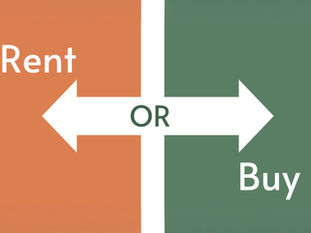
Introduction
At Homesmith, our goal is to help more people turn their dream of a beach lifestyle in Spain into reality. To help you get your ducks in a row, we’ve made it simple to figure out the six essentials — so you’re prepared to move quickly and make confident decisions when the right home comes along.
Get your NIE number
The Número de Identidad de Extranjero (NIE) is a mandatory tax identification number in Spain. It is required for any major financial transaction, including purchasing property, opening a bank account, securing a mortgage, and setting up utilities.
How to get an NIE
Already living in Spain → You should already have one
Non-EU relocators → Your NIE is issued as part of your visa application (e.g. Non-Lucrative Visa, Digital Nomad Visa).
EU relocators & holiday home buyers → Apply at your nearest Spanish consulate, or in Spain via a gestor/lawyer/NIE service (we have connections).
Plan your budget
Use our recommended budget planning tools to calculate how much money you need, whether you’re buying with cash or a mortgage, and which additional costs may arise so there are no surprises.
Homesmith budget calculator → Works for both cash and mortgage buyers to show how much money you’ll need in total, and how much extra you’ll need for taxes and fees based on different purchase prices.
Watch Millennials with Money video "how much does it cost to buy your home in Spain?"→ British financial analyst Jonny, goes deep on all the costs involved including:
All key costs (taxes, notary, registry, valuation).
Rates by Autonomous Community.
Mortgage repayments by term and interest rate.
Currency conversions to USD, GBP, CAD, AUD.
Side-by-side comparison of up to three properties.
Explore your home financing options
Having your financing in place makes you a stronger buyer and speeds up the purchase process.
Your main options:
Cash purchase → Can give you up to 10–15% negotiating power on the listing price..
Mortgage from your home country → Worth exploring if your bank offers overseas loans, but terms and timelines can vary.
Spanish resident mortgage → Lower deposit (around 20%) and better rates, but you must be a legal resident.
Spanish non-resident mortgage → Higher deposit (30–40%), slightly higher rates, and proof of stable income in a major currency.
Connect with our trusted finance partners — Mortgages Direct (broker) and UCI (direct lender) — they specialise in helping buyers secure the best deal.
Sort you currency exchange & transfer
Have your funds in euros before making an offer so you can lock in a good rate and move quickly when we find the right home. We work with two partners for this:
Wise → Holds and sends multiple currencies, choose when to exchange, low fees, online, optional account manager for large amounts. Best for confident online buyers.
GC Partners → Transfer-only with a dedicated account manager from day one. Ideal for large one-off purchases or regular pension transfers with fixed/agreed rates.
Open a Spanish Bank Account
You'll needs a Spanish IBAN account for mortgage payments, utility bills, and to pay notary and purchase fees. If you’re considering an online bank, check carefully — not all offer a Spanish IBAN for euro accounts, and this can cause major problems during the purchase process.
Your situation | Bank Account | Notes |
Already living in Spain | Resident account | You will already have this in place. |
Relocating permanently to Spain | Start with non-resident account | Can switch to a resident account once you have your visa/residency permit & Spanish address. |
Buying a Holiday Home | Non-resident account | Always non-resident unless you later relocate to Spain. Expect higher fees and extra paperwork. |
What you’ll need: NIE, passport, and proof of address (from your home country or Spain). Some banks may also ask for proof of income.
When to open: Most buyers arrange their account during a viewing trip, before signing the purchase contract. We can connect you with banks we’ve worked with to make the process smoother.
Understand your visa & residency obligations
This step only applies if you’re currently living outside Spain and plan to relocate permanently.
Outside the EU → You’ll need a visa (e.g. Non-Lucrative Visa, Digital Nomad Visa) to live in Spain. Not everyone will qualify, so it’s important to check this first.
Another EU country → You can buy a home without a residence certificate, but you must apply for it within the first three months of arriving. This is known as the Certificado de Registro de Ciudadano de la Unión Europea.
Contact Maria at Help at Hand Spain to check your visa options and start the process
Your Next Steps:
💬 Join our Costa Dorada Facebook group — tips, local insights, and sneak peaks on new listings from our real estate partners.
📲 8 Reasons why smart home buyers are moving to the Costa Dorada
💼 Ready to find your home? — choose the right support to help you find your beach home on this 100km stretch of Catalan coastline.







